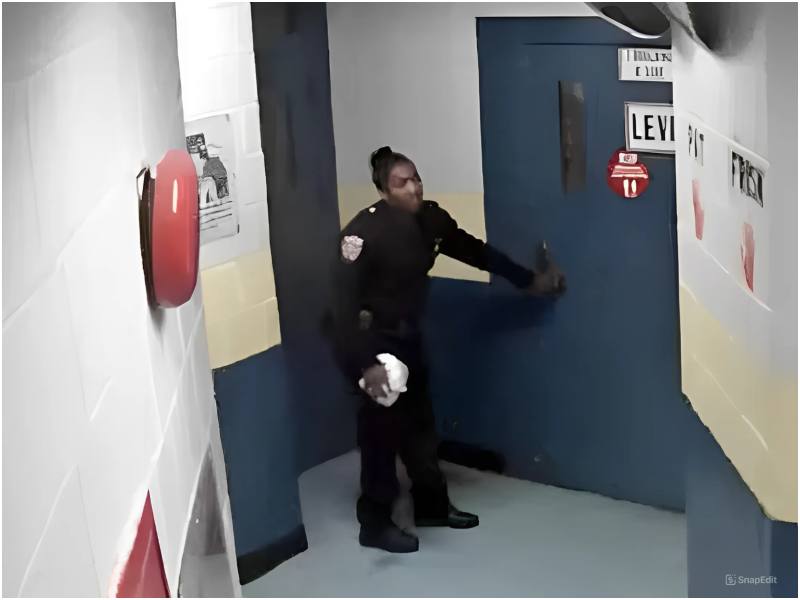In a disturbing breach of trust, former corrections officer Ghislaine Barrientos has been arrested and charged with multiple offenses for allegedly orchestrating a drug smuggling scheme at New York City’s Rikers Island.
The 37-year-old was taken into custody on Wednesday and now faces serious charges, including conspiracy to commit honest services fraud, conspiracy to distribute controlled substances, and making false statements to law enforcement.
Prosecutors allege that Barrientos colluded with others to introduce illegal items, including cocaine and the synthetic drug K-2, into the Robert N. Davoren Complex on Rikers Island. In exchange for her actions, she reportedly received thousands of dollars in compensation.
Court documents detail the scheme’s careful planning, beginning on April 11, when Barrientos discussed sending a package to herself through a delivery service in collaboration with an associate of an inmate, referred to as “Inmate-1.”
Surveillance footage captured Barrientos entering Inmate-1’s cell on April 15, although the specific activities inside the cell were not visible, raising suspicions among prison officials.
On April 17, a search of Inmate-1’s cell yielded sheets of paper testing positive for cocaine. Just days later, on April 24, another package was allegedly sent to Barrientos by the associate. During her shift, a drug-sniffing dog alerted staff to narcotics, prompting a search of Barrientos’s belongings, which uncovered ten sheets of paper testing positive for K-2.
When questioned, Barrientos denied ever being asked to bring contraband into the facility, a claim contradicted by evidence found during a search of her vehicle, which included additional sheets of paper and approximately $2,466 in cash.
Damian Williams, the U.S. Attorney for the Southern District of New York, emphasized the severe implications of Barrientos’s alleged actions.
“Rikers Island is less safe, for inmates and officers alike, when corrections officers and others in positions of public trust accept bribes to smuggle contraband,” he stated.
The case raises significant concerns about the integrity of correctional facilities, as the introduction of drugs like cocaine and K-2 can exacerbate violence, health emergencies, and other dangerous situations within prisons. K-2, in particular, poses unique challenges due to its synthetic nature and unpredictable effects, which can include hallucinations and aggressive behavior.
This scandal underscores the ongoing challenges faced by correctional facilities in preventing contraband entry, highlighting the complexities involved in smuggling operations that coordinate efforts from both inside and outside the prison walls. The case also points to potential gaps in surveillance systems, as some activities occurred out of view of security cameras.
Barrientos’s alleged false statements further complicate her legal troubles, as lying to investigators can result in additional charges. The discovery of cash in her vehicle suggests a corruption motive, emphasizing the need for stringent oversight in law enforcement and correctional settings.
Authorities may respond to this incident by enhancing security protocols and providing additional training for staff, reinforcing the importance of integrity and accountability within correctional roles. If convicted, Barrientos could face severe legal repercussions, including prison time and fines.

